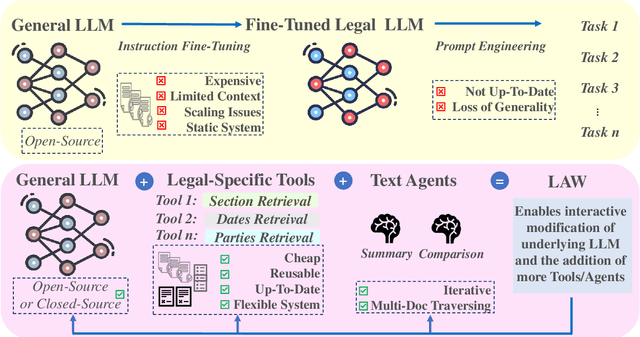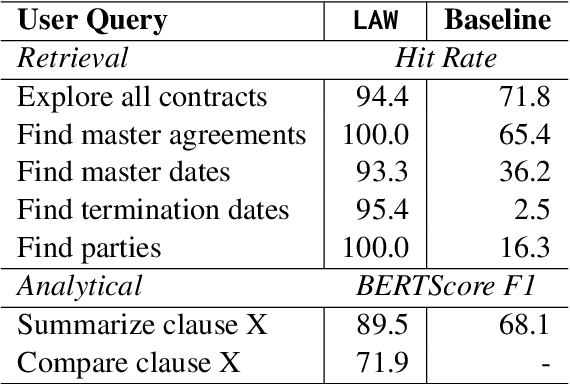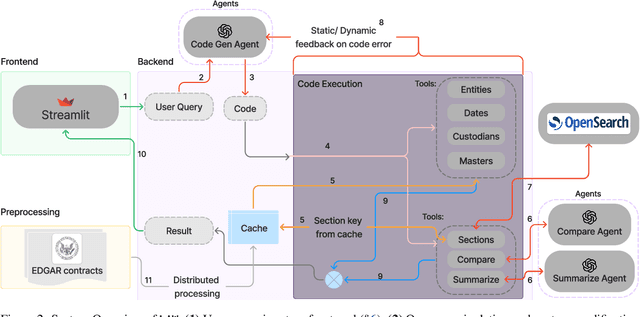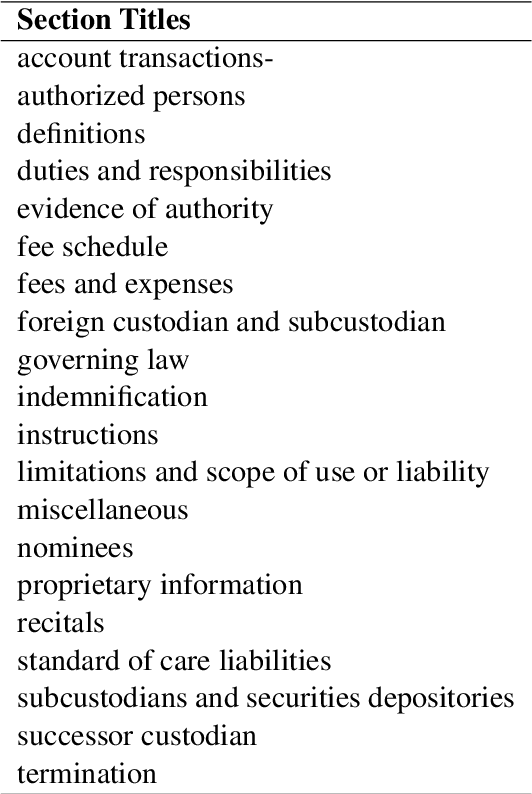Lucas Cecchi
LAW: Legal Agentic Workflows for Custody and Fund Services Contracts
Dec 15, 2024



Abstract:Legal contracts in the custody and fund services domain govern critical aspects such as key provider responsibilities, fee schedules, and indemnification rights. However, it is challenging for an off-the-shelf Large Language Model (LLM) to ingest these contracts due to the lengthy unstructured streams of text, limited LLM context windows, and complex legal jargon. To address these challenges, we introduce LAW (Legal Agentic Workflows for Custody and Fund Services Contracts). LAW features a modular design that responds to user queries by orchestrating a suite of domain-specific tools and text agents. Our experiments demonstrate that LAW, by integrating multiple specialized agents and tools, significantly outperforms the baseline. LAW excels particularly in complex tasks such as calculating a contract's termination date, surpassing the baseline by 92.9% points. Furthermore, LAW offers a cost-effective alternative to traditional fine-tuned legal LLMs by leveraging reusable, domain-specific tools.
FISHNET: Financial Intelligence from Sub-querying, Harmonizing, Neural-Conditioning, Expert Swarms, and Task Planning
Oct 25, 2024Abstract:Financial intelligence generation from vast data sources has typically relied on traditional methods of knowledge-graph construction or database engineering. Recently, fine-tuned financial domain-specific Large Language Models (LLMs), have emerged. While these advancements are promising, limitations such as high inference costs, hallucinations, and the complexity of concurrently analyzing high-dimensional financial data, emerge. This motivates our invention FISHNET (Financial Intelligence from Sub-querying, Harmonizing, Neural-Conditioning, Expert swarming, and Task planning), an agentic architecture that accomplishes highly complex analytical tasks for more than 98,000 regulatory filings that vary immensely in terms of semantics, data hierarchy, or format. FISHNET shows remarkable performance for financial insight generation (61.8% success rate over 5.0% Routing, 45.6% RAG R-Precision). We conduct rigorous ablations to empirically prove the success of FISHNET, each agent's importance, and the optimized performance of assembling all agents. Our modular architecture can be leveraged for a myriad of use-cases, enabling scalability, flexibility, and data integrity that are critical for financial tasks.
 Add to Chrome
Add to Chrome Add to Firefox
Add to Firefox Add to Edge
Add to Edge